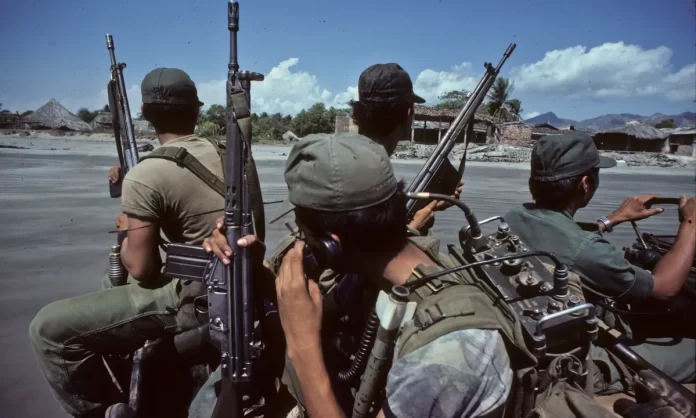In an unprecedented move, President Nayib Bukele of El Salvador has ordered a massive military deployment in a rural region known as Cabañas. The operation aims to flush out gang members allegedly hiding in the area, as part of the government’s ongoing war on gangs.
Since a state of emergency was declared in March 2022, more than 70,000 suspected gang members have been arrested, reflecting the government’s commitment to tackling gang activity in the country. However, there have been concerns raised by rights groups over the dragnet approach, as thousands of individuals with no discernible links to gang activity have also been caught up in the arrests.
The recent deployment involves 7,000 soldiers and 1,000 police officers who have established a security fence around the region. President Bukele emphasized that the aim is to completely surround the gang members and extract them from their hideaways. He firmly stated that the siege would continue until “all the criminals” are apprehended.
Cabañas is an agricultural region covering over 1,000 sq km and housing more than 160,000 people. While the operation is ongoing, it remains unclear whether residents will be allowed to leave the area or conduct their normal activities. President Bukele sought to assure honest citizens, visitors, and tourists that they have nothing to fear during the operation.

The president’s security strategies have been successful in disrupting gangs in large urban centers, forcing them to seek refuge in remote rural areas. Critics argue that the mass arrests carried out under the state of emergency have raised human rights concerns, with reports of arbitrary detentions.
This is not the first time that El Salvador’s security forces have implemented such a large-scale operation. In a similar move last year, the city of Soyapango was surrounded in a crackdown on gang activity.
In recent developments, the country’s lawmakers have authorized mass trials, raising further questions about due process and fair judicial proceedings.
The situation in El Salvador continues to be closely monitored by international observers, as the government’s efforts to dismantle gangs come under scrutiny. While the authorities are determined to address the gang menace, human rights and civil liberties must also be protected in the process.





